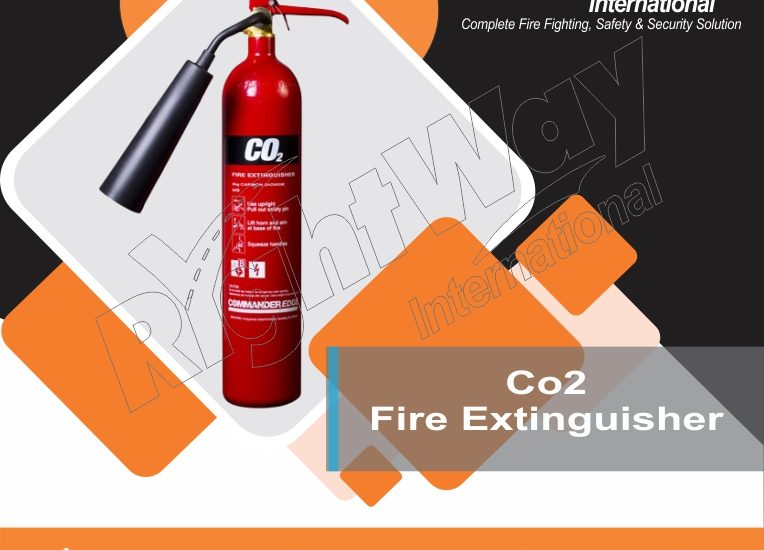CO2 Fire Extinguishers carbon dioxide (CO₂) fire extinguisher uses compressed CO₂ gas to fight fires. When released, the gas rapidly cools the fire and displaces oxygen, which is essential for combustion. Unlike other extinguishers, CO₂ leaves no residue behind. This makes it especially useful in environments that house electronics or sensitive equipment.
Types of CO₂ Fire Extinguishers
Class B CO₂ Extinguishers
These extinguishers are ideal for fires involving flammable liquids such as oil, gasoline, or solvents. The CO₂ gas suffocates the fire by cutting off its oxygen supply, stopping combustion almost instantly.
Class C CO₂ Extinguishers
Designed for electrical fires, these extinguishers are safe to use on energized equipment. Since CO₂ does not conduct electricity, it prevents the risk of electric shock during firefighting.
Advantages of CO₂ Fire Extinguishers
Safe for Electrical Use
One of the biggest advantages of CO₂ is its non-conductive nature. Therefore, it can safely extinguish electrical fires without endangering the user.
No Residue Left Behind
Unlike foam or powder extinguishers, CO₂ doesn’t leave any mess. This makes it perfect for use in server rooms, control panels, and laboratories where cleanup could damage critical equipment.
Fast Cooling Effect
CO₂ extinguishers not only smother flames but also deliver intense cooling. This rapid cooling helps prevent re-ignition and reduces further damage.
Applications of CO₂ Fire Extinguishers
Commercial and Industrial Settings
CO₂ extinguishers are widely used in offices, factories, and server rooms. They provide quick and safe fire suppression without harming sensitive devices or materials.
Laboratories
Because CO₂ leaves no residue, it is a great option for laboratory environments where chemicals and electronics are in close proximity.
Vehicles and Transportation
In vehicles, especially those carrying electrical systems or flammable fluids, CO₂ extinguishers offer a reliable solution in the event of a fire caused by malfunctions or accidents.
Maintenance of CO₂ Fire Extinguishers
Perform Regular Inspections
Every month, check the extinguisher’s pressure gauge and inspect for any physical damage. Make sure the nozzle is clean and the seal is intact.
Schedule Annual Servicing
Each year, a qualified technician should inspect the extinguisher. During this check, they examine the cartridge, test pressure levels, and ensure all parts function correctly.
Recharge or Replace as Needed
After use, or if the extinguisher is damaged, it should be recharged or replaced immediately. Always follow the manufacturer’s recommendations to maintain safety and performance.
Conclusion
CO2 Fire Extinguishers CO₂ fire extinguishers are essential for environments where electrical or flammable liquid fires are a concern. Their clean operation, non-conductive properties, and cooling capabilities make them a top choice for fire safety. By understanding how they work and committing to regular maintenance, you can ensure they remain ready for any emergency


